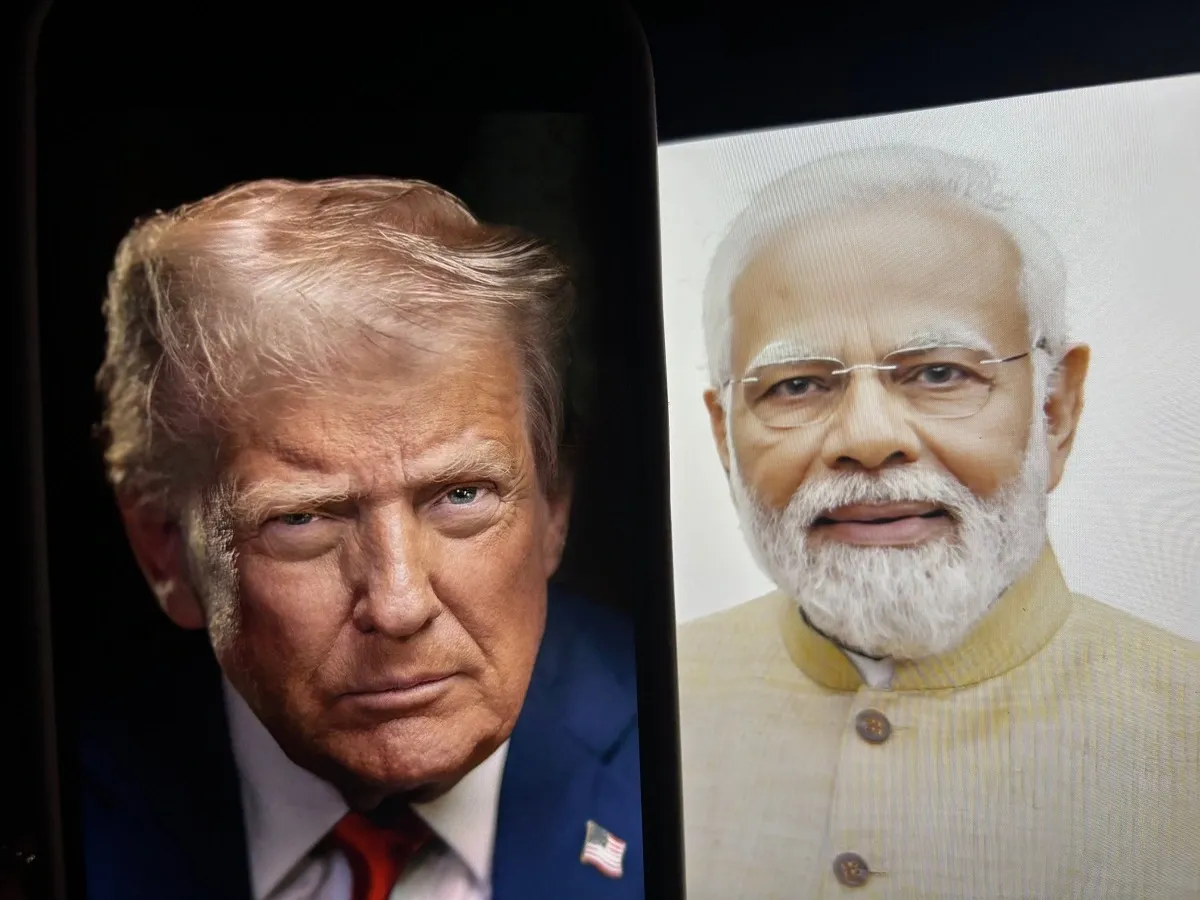Business News
India’s pushback to Trump’s tariff threat: Why New Delhi won’t toe West’s Russia sanctions line
.png)
4 min read | Updated on August 05, 2025, 09:48 IST
SUMMARY
India has firmly rejected US President Donald Trump’s threat to raise tariffs over its continued oil imports from Russia, calling the criticism unjustified.

The Ministry of External Affairs defended the purchases as necessary for energy security and highlighted ongoing Western trade with Russia.
India has issued a sharp rebuttal to US President Donald Trump's threat to hike tariffs, following Washington’s renewed criticism of New Delhi’s oil imports from Russia amid the ongoing Ukraine conflict.
The remarks come after President Trump accused India of profiting from discounted Russian crude and vowed to “substantially” raise tariffs on Indian goods, claiming that New Delhi was “financing” Russia’s war in Ukraine.
"India is not only buying massive amounts of Russian oil; they are then, for much of the oil purchased, selling it on the open market for big profits," Trump wrote on social media on Monday. “They don’t care how many people in Ukraine are being killed by the Russian war machine.”
India, which has maintained a non-aligned position since the Ukraine war began in 2022, countered that it turned to Russian oil only after Western nations, particularly in Europe, diverted traditional energy supplies amid sanctions.
“The United States at that time actively encouraged such imports by India for strengthening global energy markets' stability,” the ministry said.
Double standards?
New Delhi pointedly highlighted the West’s apparent hypocrisy over ongoing trade with Russia, noting that both the US and EU continue to engage in substantial economic activity with Moscow, which is not limited to energy.
The statement revealed that in 2024, the European Union recorded goods trade with Russia worth €67.5 billion, along with €17.2 billion in services the previous year. EU imports of Russian liquefied natural gas (LNG) hit a record 16.5 million tonnes in 2024, surpassing 2022 levels.
“The very nations criticizing India are themselves indulging in trade with Russia. Unlike our case, such trade is not even a vital national compulsion,” the statement read.
The ministry also cited US imports of Russian uranium, palladium, fertilisers, and chemicals, underscoring that India’s own purchases are “meant to ensure predictable and affordable energy costs to the Indian consumer.”
Tariff escalation and diplomatic friction
Trump’s threat follows an executive order he signed last week, which imposes higher tariffs on imports from more than 60 countries, including India.
Stephen Miller, White House Deputy Chief of Staff, told Fox News on Sunday that it was “not acceptable for India to continue financing” Russia’s war by buying its oil.
The latest escalation adds to a growing list of grievances aired by President Trump, who has accused India of maintaining one of the world’s “most strenuous and obnoxious” trade regimes, of buying the “vast majority” of its military hardware from Russia, and of imposing high tariffs on US goods.
Trump also recently mocked India and Russia for their close ties, saying the two countries “can take their dead economies down together”, a comment which prompted an immediate pushback from Indian officials who noted India remains the world’s fastest-growing major economy.
Strategic autonomy
Despite mounting Western pressure, India has consistently argued for a foreign policy driven by strategic autonomy and economic pragmatism, refusing to join the Western-led sanctions regime while continuing its partnerships with both Russia and the West.
Analysts say the latest standoff could test New Delhi’s balancing act between major powers, especially as the US-India relationship has grown deeper in recent years, particularly in areas of defence and technology.
But the current rhetoric signals a potential chill in ties, one that India appears prepared to confront.
“Like any major economy, India will take all necessary measures to safeguard its national interests and economic security,” the ministry asserted.
By signing up you agree to Upstox’s Terms & Conditions
About The Author
Next Story

